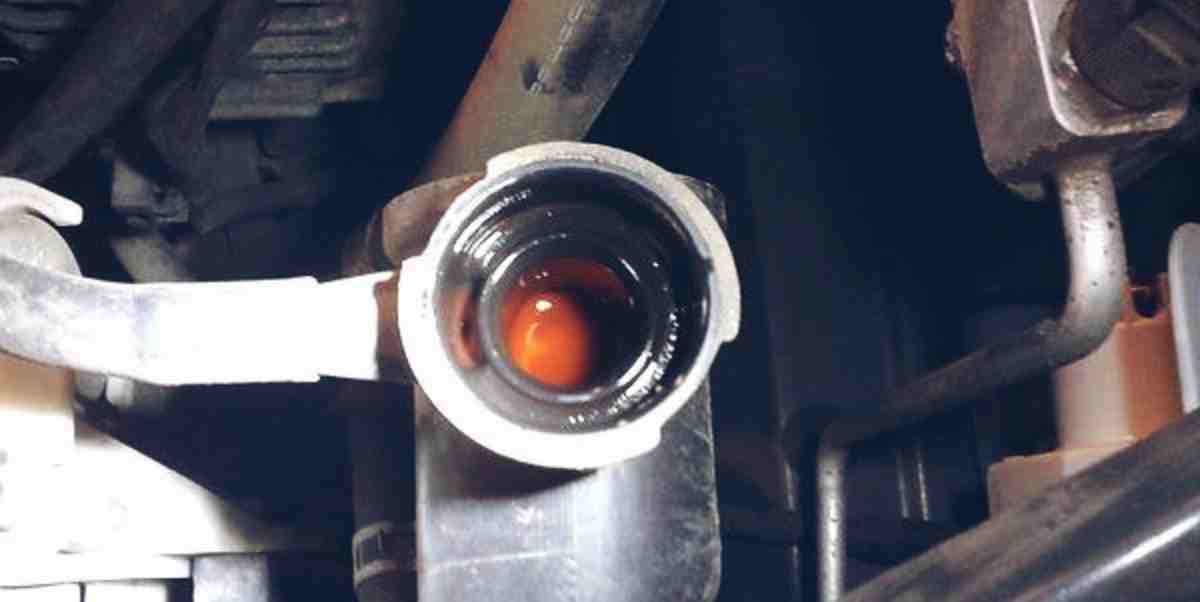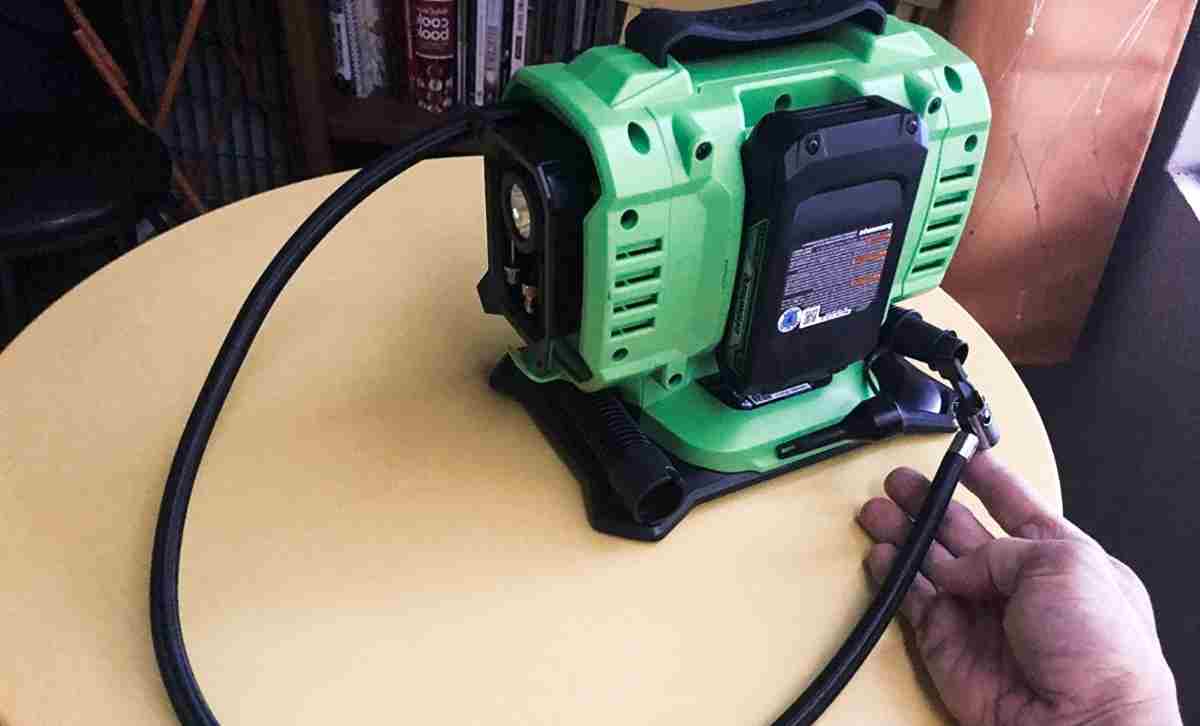You want the best antifreeze for aluminum radiator if your owner’s manual recommends coolant with low or no silicate designed specifically for the aluminum engine.
Generally, silicates passivate metal parts containing anti-corrosive coating very quickly. And although it is useful for preventing metal corrosion, silicate is abrasive and will degrade an aluminum radiator faster.
For the sake of protecting your radiator, your automaker is recommending the use of antifreeze with low silicate formulas, which has sufficient passivating power but less abrasion.

Best antifreeze for aluminum radiator
To help you increase the useful life of your radiator, we’ve done your job by testing and reviewing the best antifreeze for aluminum radiator to buy:
1. ACDelco 10-101 DEX-COOL Extended Life Coolant – 1 Gallon
Our first test was with ACDelco 10-101, a reliable antifreeze for any aluminum radiator. We can say for sure that this product is the affordable solution you need instead of visiting dealerships or parts houses.
Pros
a. Silicate and phosphate-free
ACDelco Dex-Cool is an orange antifreeze made for your aluminum radiator—it does not contain silicate and phosphate.
Upon use, we figured out that ACDelco’s claim of using premium-grade coolant/antifreeze is true. Indeed, it’s formulated with a thoughtful chemical composition that reduces aluminum breakdown in radiators made with aluminum.
b. Based on carboxylate technology
ACDelco Dex-Cool is designed based on carboxylate technology to optimize the efficiency of your hybrid car.
c. Undiluted formula
This antifreeze for aluminum radiator is undiluted, meaning that you can customize your own water concentrations to antifreeze/coolant according to your environmental conditions.
Cons
Honestly, no con we can think of. But for some vehicles, the cooling level may not be too significant but it’s significant in some.
[azonpress template=”box” asin=”B000QGWYFC”]
2. Maxima 82964 Coolanol 50/50 Blend Performance Coolant – 64 oz.
Well, Maxima 82964 Coolanol is a “coolant” if you need coolant. But what makes it exceptional is that it is good quality and boiling-freezing point. The reviews on this product say a lot about it, although you’ll find some from people with bad experiences—that shouldn’t keep you from investing in it. Do not also overthink the reviews you come across.
Read also: Lexus vehicle: coolant to use
Pros
a. Premixed
Maxima 82964 Coolanol is a premixed 50/50 blend of deionized water and premium quality ethylene glycol-based antifreeze for aluminum radiator. It keeps your radiator from rust and corrosion and works excellently in liquid-cooled engines.
b. Contains anti-foam components
Anti-foam agents in an antifreeze help to reduce water pump cavitation and increase the cooling capacity.
c. Professional water to coolant blend
This Coolanol is a 50/50 blend of deionized water and coolant, keeping your vehicle from freezing in winter down to -34°F.
d. Increases boiling point
Maxima 82964 Coolanol increased the boiling point of our tested vehicle cooling systems to 265F with a 15-pound radiator cap.
Con
A good coolant for aluminum radiator. Unfortunately, the manufacturer does not openly state that the product is an ethylene glycol based and poisonous. According to the Centers for Disease Control and Prevention (CDC), if ingested, ethylene glycol breaks down into toxic compounds in the body its byproducts first affect the central nervous system (CNS), then the heart, and finally the kidneys. Ingesting enough can cause death.
Make sure to keep this product away from children and pets.
[azonpress template=”box” asin=”B0012TROMU”]
3. Zerex Original Green Low Silicate 50/50 Prediluted Ready-to-Use Antifreeze/Coolant 1 GA
You need Zerex Original Green if you have an older passenger car. It’s also good to use on light trucks such as Nissan, Mazda, Ford, Hyundai, Kia, GM, Chrysler, and other brands that specify antifreeze with “low silicate containing green formula with Inorganic Additive Technology (IAT)”.
Pros
a. Cooling protection
Zerex Original Green is designed for protection down to -34 F.
b. Prevents rust and corrosion
It offers extended engine protection against rust and corrosion, not just your aluminum radiator.
c. Contains denatonium benzoate
This antifreeze for aluminum radiator also contains 30-50 ppm of denatonium benzoate of bittering agent.
Cons
It’s diluted antifreeze, but not very economical since the undiluted antifreeze is merely a couple of dollars more than the already-mixed. Nonetheless, it’s a good buy with a professional blend.
[azonpress template=”box” asin=”B0033QQ4S0″]
4. Royal Purple 01600 Purple Ice Super-Coolant Radiator Additive – 12 oz.
Pros
a. Coolant temperature reduction
Indeed, the Royal Purple 01600 can reduce the coolant temperatures of your vehicle up to 22 degrees F and far better than most similar coolants, and still protects against corrosion.
b. Surface tension reduction
Our Royal Purple 01600 could reduce coolant surface tension by allowing more heat transfer outside the radiator, which also increases horsepower.
c. Engine protection
Apart from being safe for your radiator, Royal Purple 01600 reduces engine and cylinder head hot spots. This also means the chances of engine failure are eliminated.
d. Prevents overheating
If you face overheating problems while driving, buy this Royal Purple 01600. It helped by cleaning the system in the vehicle tested. It also reportedly increases the useful life of your water pump.
[azonpress template=”box” asin=”B000BRGAJ2″]
5. Motorex 198463 Ready to Use M3.0 Ethylene Glycol Coolant, 1 Liter
Motorex 198463 is a premixed and ready-to-use ethylene glycol-based antifreeze for your aluminum radiator. Just make sure not to expose it to pets and children.
Pros
a. Corrosion prevention
The inhibitors in this antifreeze protect against corrosion and deposits in components of your vehicle cooling system like cooling channels in the cylinder head, cooler, engine block, heat exchanger, and water pump.
b. Protects against freezing
It honestly provides good protection against not just corrosion and limescale but also freezing, especially if your aluminum engine is highly stressed. Our tested Motorex 198463 was able to protect the vehicle system at temperatures as low as -38 °Celsius.
c. Thermal conductivity
The thermal conductivity is good to go. It lets you experience extended usage and protects against corrosion.
d. Good for aluminum
This product does not contain silicate, borate, nitrate, phosphate, and amine.
Cons
We had a bad heating experience after mixing Motorex 198463 with another antifreeze. Do not mix it with other antifreeze/coolant—even the manufacturer does not recommend a mixture with other coolants.
[azonpress template=”box” asin=”B00EO63ORW”]
6. Valvoline Multi-Vehicle Concentrate Antifreeze/Coolant 1 GA
This antifreeze for aluminum radiator is made for your performance car and will keep the engine running optimally.
Pros
a. Special protection
According to Valvoline, some antifreeze brands claim to use a corrosion inhibitor package without silicate but this does not fully protect against corrosion. Valvoline is bringing you the only antifreeze to contain Alugard Plus, which provides maximum protection.
b. Wider compatibility
This antifreeze is compatible with all makes and models, as well as all mileages.
c. Lubrication
It lubricates your vehicle’s gaskets and seals.
d. Weather protection
Protects against hot weather boil-overs and cold weather freeze-ups to keep your engine running optimally.
e. Contains bitter agent
This Valvoline antifreeze contains 30 to 50 ppm of denatonium benzoate bittering agent.
Cons
Nothing bad about it so far in our tested 2004 Toyota Camry, 2007 Hyundai Entourage, and Dodge.
[azonpress template=”box” asin=”B0033QO054″]
Concentrated or premixed coolant for aluminum radiator?
Concentrated coolants come without dilution, so you have to dilute them to a specific coolant concentration ratio, i.e 50 percent, by mixing with water.
However, pre-mix or ready-to-use coolants/antifreeze come diluted with water at a preset ratio, usually between 33 and 50 percent. Premixed antifreeze takes away your guesswork since it is already correctly mixed (antifreeze and water).
What water/antifreeze concentration is recommended?
The water/antifreeze concentration to use depends on the manufacturer. Purple Ice, for example, has tested theirs and shown that higher water concentrations yield better cooling benefits.
In most cases, however, the concentration should be 50/50. Some antifreeze solutions contain corrosion inhibitors and lubricants added to compensate for a lower antifreeze/water concentration.
How often should you add antifreeze to your radiator?
You should add antifreeze to your radiator once a year or after every 30,000 miles, or whichever comes first (depending on the vehicle) for optimal engine performance.
Make sure to check your owner’s manual for the specific recommendation for your vehicle. Normally, when you notice your car running warmer than usual, or you have trouble starting it in the winter, you may need to replace your old antifreeze. First, flush the old one and replaced it with a new fluid. Use this opportunity to check and fix your clogged radiator for a better experience.
Will adding too much antifreeze harm your car’s cooling system?
Generally, adding too much antifreeze or overfilling can cause hot coolant to leak throughout your engine bay, causing serious electrical and wiring damage. If the hose bursts, the engine will not get coolant, which will result in bigger problems.
Make sure you refer to your owner’s manual for the proper measurement. The product label will also recommend the concentration you need to get your vehicle to run optimally. You could always consult the dealership or your mechanic if you’re not sure.


